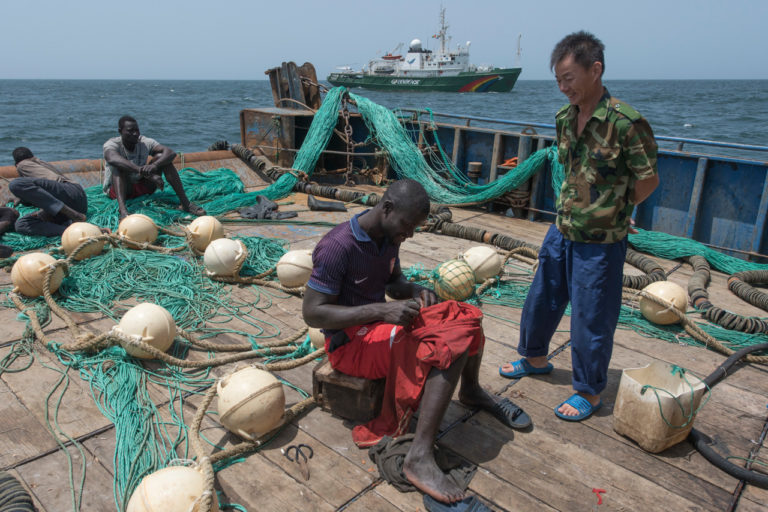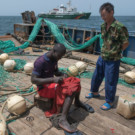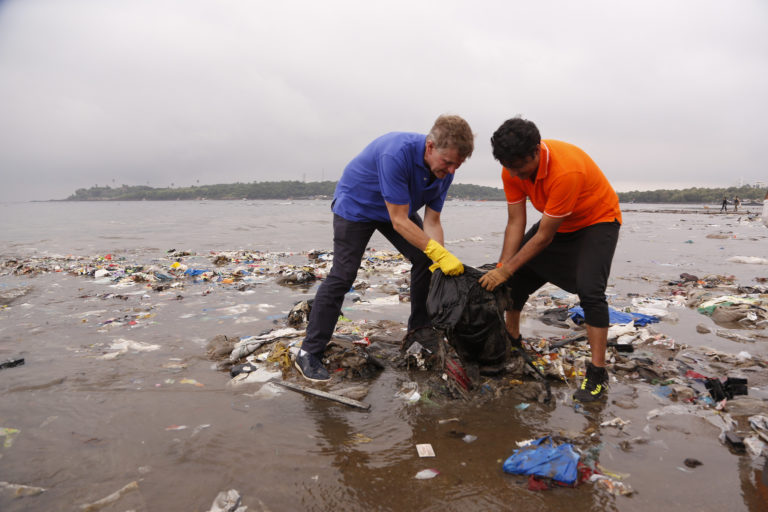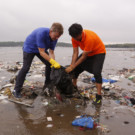Global climate change is impacting Earth’s oceans in a number of ways, from higher water temperatures and rising sea levels to acidification and oxygen depletion. Now, scientists have reported another…
2017 currently holds the record for hottest ocean temperatures, but, according to a new study, 2018 is likely to take the top spot as hottest year on record for Earth’s…
Women of childbearing age from small-island states and countries have been found to have toxic levels of mercury, a potent neurotoxin that can harm unborn children, a new report shows.…
MANILA, Philippines — Freedom Island is drowning in garbage. The last coastal frontier in the Philippine capital provides refuge to migratory birds and a thick mangrove forest there serves as…
New research finds that the mass bleaching event that led to the death of 30 percent of shallow-water corals on the Great Barrier Reef in 2016 also had a substantial…
On the morning of March 1, 1954, the United States tested its largest thermonuclear bomb over Bikini Atoll in the Marshall Islands. Code-named “Castle Bravo”, the explosion was more than…
"We need to keep this river clean,” says Muhammad Yusuf, a fisheries official from Padang, the capital of the Indonesian province of West Sumatra. “We’ve got to keep people from…
Shark-fishing outfits have for decades been catching dolphins, seals and other sea mammals to use as bait, helping drive some of those species closer to extinction, researchers have found. In…
Much of the fishing that takes place in international waters would be unprofitable without the billions of dollars in subsidies pumped in by governments to sustain the ecologically destructive industry,…
On today’s episode, renowned marine biologist Sylvia Earle joins us for an in-depth conversation about marine conservation. Listen here: Legendary oceanographer, marine biologist, and environmentalist Sylvia Earle, sometimes known…
Tomorrow, April 21, marks World Fish Migration Day. Many animal species make lengthy migrations as one-time or annual portions of their life cycle. Whereas journeys by birds between North and…
In February, Cambodia announced the establishment of its very first marine national park, covering 524 square kilometers (202 square miles) in the Gulf of Thailand. But the declaration does nothing…
JAKARTA — Two videos of manta rays and other fish swimming through swaths of garbage off the resort island of Bali earlier this year have highlighted once again the plastic…
Vast swaths of the world’s oceans are turning into “dead zones” as global warming and pollution strips them of oxygen, threatening marine life on a massive scale, a new study…
KEP ARCHIPELAGO, Cambodia – It’s not long before midnight and an outlaw trawler has been spotted. The captain — a weather-gnarled old fisherman wearing just boxer shorts — winces as…
For the first time, a team of scientists has captured and then released a vaquita (Phocoena sinus), a rare porpoise in the Gulf of California, as part of a project…
Beneath their prehistoric-looking shells, turtles conceal an extraordinary ability to hold their breath underwater, going without oxygen for hours, even months, at a time. This cellular-level capacity to survive underwater…
New evidence lays out the intricate trade in animal body parts that conservation groups say are driving two marine species in Mexico’s Gulf of California closer to extinction. The battle…
A joint patrol by the environmental organization Greenpeace and fisheries managers in the West African country of Guinea-Bissau has turned up a bevy of fishing boats that Greenpeace says were violating…
The United Nations Environment Programme (UNEP) launched a global campaign last month aimed at eliminating two of the chief sources of ocean trash by 2022: microplastics frequently used in cosmetics…
One of the world's major salmon-producing regions has been hit by an environmental crisis. In early May, an unprecedented fish kill struck the archipelago of Chiloé, located in southern Chile.…
Global warming is changing Earth’s oceans and those impacts will last for decades even if we rein in greenhouse gas emissions from human activities, according to new research. A report…
By now, you’ve probably heard of the massive, floating garbage patches swirling around in each of Earth’s five major ocean basins: the North and South Atlantic, the North and South…
Plastic’s popularity in the consumer world is no doubt a result of it being a low-cost material that’s both durable and extremely versatile. These advantages are undeniable, however scientists are…
United Nations treaty aimed at preventing illegal fishing will enter into force this Sunday, June 5, with 29 countries and the European Union as parties to it. Illegal, unreported, and…
rom space, there is only one stretch of ocean that lights up at night, in spring. Breaking the dark in a curved line near South America’s southern tip, the lights…
Scientists in the Labrador Sea recently made the first retrieval of data from one of 53 lines moored to the sea floor and studded with instruments that have been monitoring…
f you go more than 200 miles off the coast anywhere on Earth, you end up in the high seas, the largely ungoverned portion of the ocean that covers 43…
Under the UN Convention on Biological Diversity, 168 signatory countries committed to the creation of marine protected areas encompassing 10 percent of the world’s oceans by 2020. Given that just…
inety nine percent of 500 coral reefs surveyed in the Australian Great Barrier Reef’s pristine north are being hit by a global bleaching event that’s already slammed reefs in the…


































































